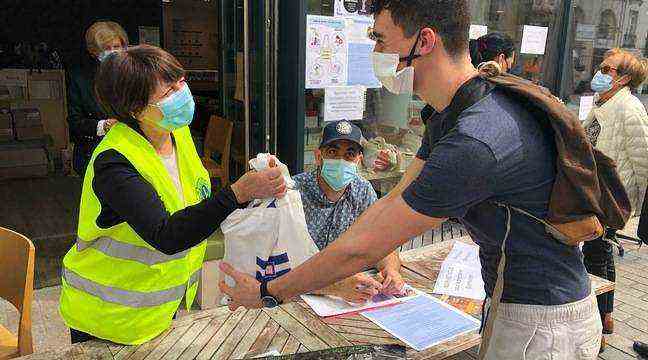Metropolis among “the least unequal in France”, Nantes has however seen precariousness increase among its inhabitants, especially during the health crisis. With 17% of the population living in poverty alone, “households hitherto in fragility have completely changed, while others have encountered difficulties in making ends meet for the first time in their lives”, indicated Monday Johanna Rolland, the mayor of Nantes, on the occasion of the unveiling of two surveys putting figures on the effects of the crisis.
“There are 46,000 people who live on less than 1,063 euros per month, and 19,000 on just a little more,” explains Karen Burban-Evain, director of the Solidarity Prevention department. The risk of poverty is highest for people living in single-parent families, students and pensioners, but children are not spared either. “It is estimated that 17% of them encounter weaknesses, such as living in overcrowded housing. Isolation, sometimes synonymous with withdrawal, has also increased in recent years with more than one in two Nantes residents (53%) now living alone.
92% of Nantes residents made donations
While the associations have noted more difficulties, and in particular to pay their rent, their bills or their leisure activities, this crisis seems to have given others a desire for more solidarity. According to a study carried out by the firm TMO, 63% of Nantes residents say that the crisis has made them more attentive to their loved ones, 48% to those who live near them. In the end, 92% of Nantes residents made donations in cash or in kind, and 41% of those questioned indicated that they had taken part in one of the many solidarity actions that have emerged in recent months, in particular during the first confinement.
While the city will launch, next week, its ” Assizes of new solidarities “, a new major citizen debate which will last four months, 58% of Nantes residents say that they “would like to get more involved in favor of people in difficulty”.

